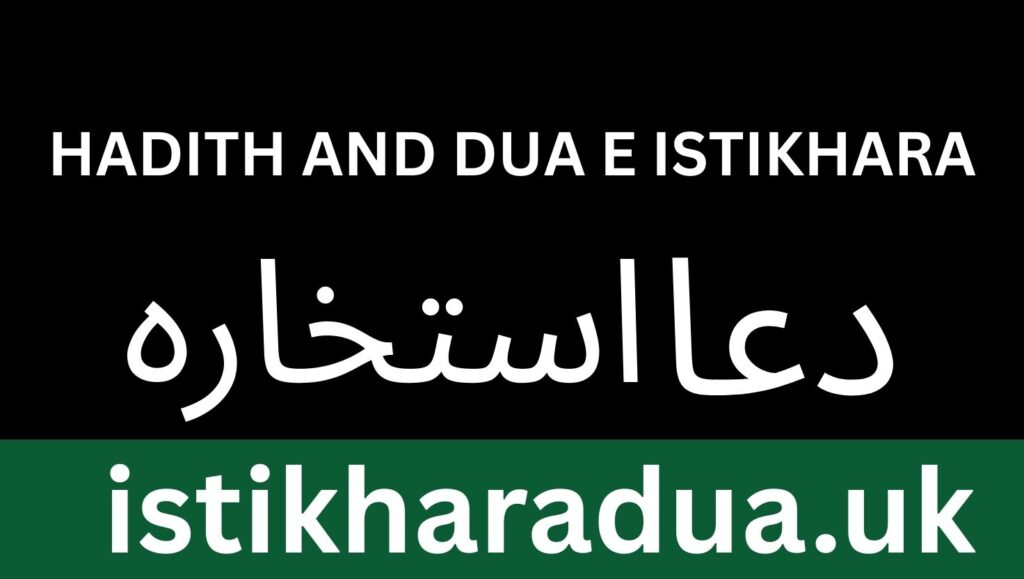
Hadith and Dua e Istikhara
The Hadith on Dua e Istikhara comes from Sahih al-Bukhari, where Prophet Muhammad (PBUH) taught his companions to perform two rak’ahs of prayer followed by a specific supplication, seeking Allah’s counsel on any matter to ensure the best outcome in faith, life, and hereafter. (36 words)
The Prophetic Teachings Behind This Powerful Prayer
Ever found yourself tossing and turning at night, your mind a whirlwind of doubts about a major life choice? Whether it’s a career shift that could change everything or a marriage proposal that’s got your heart in knots, that anxiety can feel overwhelming. I remember a time when I faced a similar dilemma—should I move cities for a job or stay rooted with family? It’s moments like these where the Hadith on Dua e Istikhara shines as a beacon of hope, reminding us that we’re not alone in our decisions.
In Islam, seeking guidance from Allah isn’t just encouraged; it’s a core part of our faith. The Quran beautifully affirms this in Surah Al-Qasas (28:56): “You surely cannot guide whoever you like, but it is Allah Who guides whoever He wills, and He knows best who are ˹fit to be˺ guided.” This verse underscores that true direction comes from the Divine, not our limited human insight.
The foundation of Dua e Istikhara lies in the Sunnah of Prophet Muhammad (peace be upon him). As narrated in Sahih al-Bukhari, Jabir bin Abdullah reported: “The Prophet (PBUH) used to teach us the way of doing Istikhara in all matters as he taught us the Surahs of the Quran. He said: ‘If anyone of you intends to do something, let him offer two rak’ahs of prayer other than the obligatory ones, and then say [the dua]…'” This Hadith highlights how the Prophet integrated this practice into daily life, making it accessible for every believer.
Scholars like Shaykh Faraz Rabbani explain that the Hadith on Dua e Istikhara isn’t about predicting the future but surrendering to Allah’s wisdom after we’ve done our part—researching and consulting others. Mufti Menk adds that it’s a tool for peace, emphasizing sincerity over expectations of dramatic signs.
Breaking Down the Hadith: What It Really Means
Let’s chat about what this Hadith truly conveys. The word “Istikhara” means seeking what’s best from Allah, as per Sheikh Abdul Nasir Jangda’s interpretation. It’s not a magic formula but a humble request: “O Allah, if this is good for me, make it easy; if not, turn it away.”
In another narration from Sahih al-Bukhari, the Prophet (PBUH) stressed teaching Istikhara like Quranic verses, showing its importance in Islamic decision-making. This ties into Quran’s Surah Yunus (10:108), where Allah invites us to seek His guidance without force.
For those feeling lost, remember: the Hadith on Dua e Istikhara addresses that pain by shifting focus from worry to trust. As Imam Abd al-Wahhab al-Sha’rani noted, it’s for all matters, fostering tawakkul.
Step-by-Step Guide: How to Perform Dua e Istikhara
Nervous about getting it right? No worries—let’s walk through it like a friend guiding you. The Hadith provides clear instructions for this Istikhara prayer.
Intention First: Decide on your matter, like seeking guidance from Allah on a job or marriage. Be neutral and sincere.
Two Rak’ahs of Prayer: Perform non-obligatory rak’ahs anytime (avoid forbidden times). Recite Al-Fatihah and short Surahs.
The Supplication: After salam, recite the dua from the Hadith:
- Arabic: اللَّهُمَّ إِنِّي أَسْتَخِيرُكَ بِعِلْمِكَ وَأَسْتَقْدِرُكَ بِقُدْرَتِكَ… (full as in authentic sources).
- Transliteration: Allahumma inni astakhiruka bi’ilmika…
- English: O Allah, I seek Your guidance by Your knowledge… Make me content with it.
Specify your issue in the dua.
- Observe Outcomes: Look for ease or barriers as signs after Istikhara prayer. Scholars say repeat up to seven times if needed.
For more on supplications, check our guide to daily duas for strength.
Benefits of Following the Hadith on Dua e Istikhara
Why turn to this? The benefits of seeking divine guidance are profound. It reduces anxiety, aligns choices with faith, and invites blessings. Quran’s Surah Al-Ankabut (29:69) promises: “And those who strive for Us – We will surely guide them to Our ways.”
In Islamic decision-making, it builds resilience. As per Yaqeen Institute, it’s after effort, leading to contentment. Especially for Istikhara for marriage decisions, it clarifies emotions.
Beginner Tips for Embracing This Practice
If you’re new, here’s empathetic advice to ease your worries:
- Build Sincerity: Pray from the heart, not routine.
- Combine with Consultation: Seek advice first, as Prophet’s Sunnah teaches.
- Be Patient with Signs: Guidance unfolds naturally.
- Journal Feelings: Track pre- and post-prayer thoughts.
- Start Simple: Try on small choices.
Explore Tahajjud prayers for deeper connection.
Myths Busted: Clearing Misconceptions About Dua e Istikhara
Myths can cloud this beautiful Hadith. Let’s debunk them with scholar insights.
Myth 1: You Need a Dream. False! The dua doesn’t mention dreams; signs are through ease. Shaykh Faraz Rabbani clarifies no mandatory signs.
Myth 2: Only for Marriage. The Hadith says for all matters.
Myth 3: Pious People Only. Anyone can; it’s for sinners seeking guidance too.
Myth 4: Ask Others to Do It. Personal is best; build your bond with Allah.
These busts empower you to practice confidently.
Real-Life Examples: Stories of Divine Guidance
Real stories show the Hadith’s power in action.
Example 1: Career Choice. A Reddit user prayed about a job switch; barriers arose, leading to a better local opportunity.
Example 2: Relationship Clarity. Another shared Istikhara ending a toxic bond, opening doors to peace.
Example 3: Marriage Decision. A person saw signs steering away from mismatch, toward harmony.
These illustrate how seeking guidance from Allah transforms lives.
Case Study: Ahmed’s Experience with the Hadith on Dua e Istikhara
Ahmed, a 30-year-old engineer from Cairo, was at a crossroads: accept a lucrative overseas job or stay for family? The offer promised stability but sparked anxiety about separation. After researching and consulting elders, he turned to the Hadith on Dua e Istikhara, performing it nightly.
No dream came, but signs were evident—visa delays and a sudden promotion at home. As Mufti Menk explains, guidance manifests in events. Ahmed recalled: “I felt peace post-prayer; obstacles confirmed it wasn’t right.” Months later, the foreign company faced issues—divine protection.
This echoes Quran’s Surah Al-Nahl (16:43): “So ask the people of the Reminder if you do not know,” but ultimate guidance is Allah’s. Shared on forums, Ahmed’s story inspires, showing how the Prophet’s Sunnah addresses pain like uncertainty, turning it to gratitude. For Ahmed, it wasn’t just a decision; it strengthened faith.
Beyond the Basics: Signs and Integration
Wondering about signs after Istikhara prayer? Ease means proceed; hurdles suggest pause. Pair with Quran verses on patience.
Frequently Asked Questions About Dua e Istikhara
What is the Hadith on Dua e Istikhara?
The Hadith in Sahih al-Bukhari explains that Prophet Muhammad (PBUH) taught believers to pray two rak'ahs followed by a dua to seek guidance from Allah in all matters.
How to perform Istikhara prayer?
One should pray two nafl rak'ahs with the intention of seeking guidance, then recite the specific dua from Hadith, asking Allah to guide towards good and avert harm.
Do dreams always follow Istikhara?
No, dreams are not a requirement of Istikhara. Guidance may come through ease, inner peace, or circumstances as explained by scholars.
Is Dua e Istikhara only for marriage?
No, Istikhara is not limited to marriage. It is a Sunnah practice for all decisions, whether related to career, business, or personal life.
When to seek guidance through Istikhara?
Istikhara is recommended when facing uncertainty in halal matters, after research and consultation. Many scholars suggest performing it at night for better focus.
What if no clear signs appear?
If no signs or feelings appear, proceed with what seems reasonable. Neutrality often indicates permission. Trust Allah’s wisdom in all outcomes.
Can beginners follow this Hadith?
Yes, even beginners can perform Istikhara. Sincerity is key. Use written duas or guides for pronunciation until memorized.
